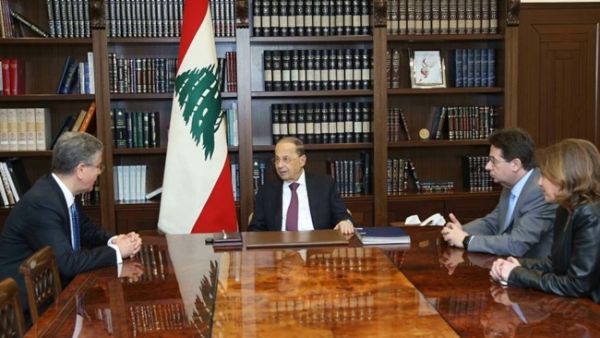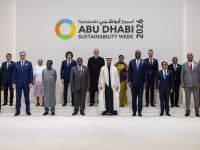The World Bank has decided to increase funds to Lebanon and reduce interest rates, the organization’s Vice President Hafez Ghanem said Tuesday. Ghanem’s remarks were made during a meeting with President Michel Aoun at Baabda Palace.
The meeting was also attended by Change and Reform bloc MP Ibrahim Kanaan, who also heads the parliamentary Finance and Budget Committee.
“The World Bank will increase the amount of funds to [further] aid Lebanon and will simultaneously reduce the value of the imposed interests,” Ghanem was quoted as saying after the meeting.
Ghanem stressed the World Bank’s support for Lebanon, adding that they hoped to help develop Lebanese institutions in terms of governance and economic development.
“We talked about ways to develop infrastructure in Lebanon as well as how to increase investment in the energy sector. In addition [we discussed] investments needed by Lebanon in the fields of transport, roads, communications and the governance sector,” he said.
Ghanem expressed optimism for the future of Lebanon’s economy.
“The Lebanese economy has significant opportunities for improvement and progress in front of it,” the official said.
The World Bank director for the Middle East Ferid Belhaj told Aoun last week that Lebanon was a priority for the organization.
Belhaj has said that the election of a president and the formation of a new government facilitated Lebanon’s cooperation with the World Bank.
In the latest announcement of funding, the World Bank approved the allocation of $200 million on Feb. 6 to repair some 500 kilometers of roads in Lebanon.
Of the allotted amount, $155 million would be a loan, repayable over a 32-and-a-half-year period.
A statement issued by the Finance Ministry said talks highlighted the “importance of the [financial] supports that the World Bank was granting to Lebanon.”
Ghanem sounded “optimism” after the election of Aoun and the formation of the government, expressing readiness “to aid Lebanon.”
Khalil, meanwhile, stressed the “need to follow up on efforts to develop the administration at his ministry to abolish graft and waste of funds.”
He said that the ministry was in the process of establishing 11 electronic services to ease the procedures people have to undergo in dealing with the ministry.
Khalil said that these electronic sites would also drastically diminish corruption.
The meeting also touched on the large influx of Syrian refugees in Lebanon “that is highly competing with local workforce and production sectors, which requires aid to deal with its various repercussions.”
There are currently 1.1 million Syrian refugees registered in Lebanon with the U.N. refugee agency, although officials estimate the figure to be around 1.5 million.
The private sector warned that some of the Syrian refugees are also setting up illegal and unlicensed small firms and stores in many parts of Lebanon.
The Lebanese government has repeatedly called on the international community to help Lebanon to reduce the negative effects of the presence of Syrian refugees on the country’s economy.
The government has also urged the United Nations, United States, Europe and some Arab states to increase the financial aid to Lebanon to cope with the presence of Syrian refugees.









